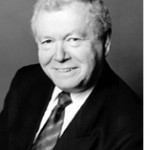By Rabbi Dow Marmur
 JERUSALEM–It seems that expressions of commitment to a lasting peace between Israel and the Palestinians that politicians on both sides are currently mouthing in front of TV cameras are intended for foreign consumption; unlike some hopefuls abroad, locals aren’t fooled by them.
JERUSALEM–It seems that expressions of commitment to a lasting peace between Israel and the Palestinians that politicians on both sides are currently mouthing in front of TV cameras are intended for foreign consumption; unlike some hopefuls abroad, locals aren’t fooled by them.
Now when US envoy George Mitchell is again in the region and the Obama administration seems to be showing, or feigning, some interest, the lofty declarations are frequent, some improbably optimistic and at times even persuasive. E.g., despite the actions of the government and pronouncements by several of their colleagues, the Prime Minister and Defense Minister have even implied that peace is around the corner.
As much as I try to believe them this time (even though I’ve always found that very difficult) it’s really hard to do so. For there’s much to suggest that both sides prefer the present state of tense confusion to a resolution of the conflict, which by its very nature will impose compromises that neither side is as yet prepared to live with.
The favorite culprit is the Israeli government’s settlement policy and its refusal to impose a further freeze on construction in the territories. As much as I think that Israel’s settlement policy is profoundly misguided and one of the main causes of the present mess, I’m not persuaded that it’s currently the real stumbling block to negotiations.
Most of the time that the settlement freeze was on, the Palestinians delayed direct negotiations. When the Israelis started building again, the Palestinians may have breathed a sigh of relief for having a “kosher” reason to stop the talks. Now when Israel refuses to impose another freeze, even for 90 days, the Palestinians have been able to revert to their usual role of victims, especially as this makes the world look at Israel as the victimizer.
Though the Americans are less forthcoming in colluding with this characterization of the Jewish state, the Europeans are more naturally predisposed to blaming Israel. Though they aren’t yet ready to recognize a unilaterally declared Palestinian state, they’re making noises in that direction. That’s why the Palestinians tend to feel closer to them whereas the Israelis still put their trust in the United States, even though they largely share in the by now almost universal disappointment with its President.
All this suggests that nothing much has changed in the months that I’ve been away from Jerusalem, living in Toronto. The scenery may be a little different but the script is the same. Because of the many years of fruitless talks and the present relatively robust economy both in Israel and in the Palestinian territory (even in Gaza!), the dramatis personae seem to be relatively contented with the plot as is, especially when they contemplate alternatives that would force them to abandon the myths that inform their rhetoric and misguide their visions. After all, modern plays hardly ever have unambiguous final acts with happy endings.
The above reflections will, alas, confirm me as a bearer of bad news, especially to readers abroad. Somehow, it seems that Israelis are if not cheerful about the situation than at least reconciled to it and satisfied with its inherent ambiguities. (I’m not in a position to comment on how Palestinians feel about it.)
Several domestic issues are currently of much greater concern here: the aftermath of the devastating fire in the North; the blatant racism by some Orthodox spokesmen; the continued vexing issue of Jewish status; refugees from foreign lands; social inequality in this land; the problem of Gaza and, of course, the menace of Iran.
There’s no shortage of items for future comments.
*
Marmur, rabbi emeritus of Holy Blossom Temple in Toronto, divides his time between Canada and Israel.